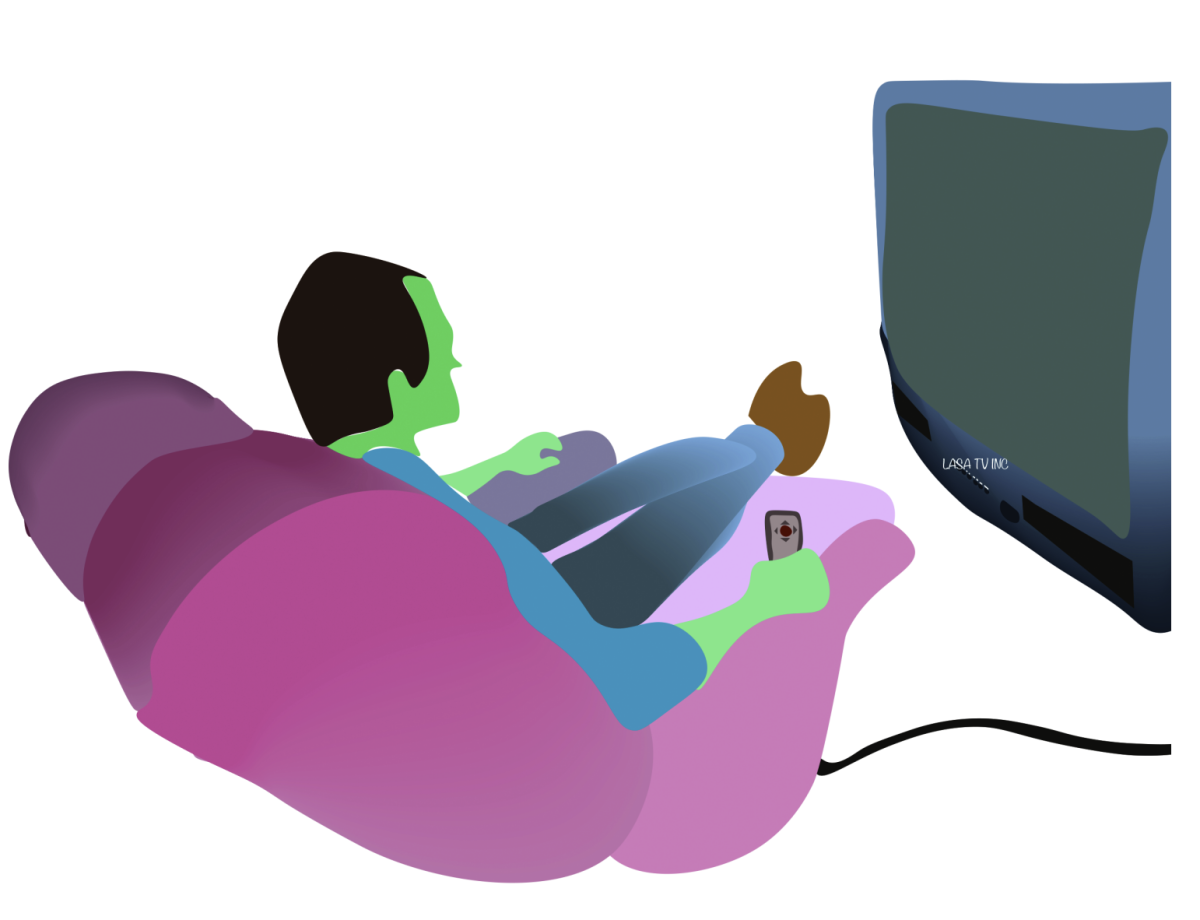Many people may remember sitting down as a little kid to watch whatever show was on television that night with their family, but chances are, these days most people associate the word “television” with turning on Netflix or Hulu. According to the National Library of Medicine, the popularity of streaming services has been extremely influential in the past few years, but not always in a beneficial way. A Medium article studying the impact of streaming services concluded that these services can cause various bad habits to form, such as binge-watching and troubled sleeping.
Binge-watching is the act of streaming many movies or television episodes in one sitting, and it tends to have negative effects on mental and physical health. Precious time that was once spent exercising, talking to friends and family, and completing goal-oriented tasks is now often spent binge-watching and sitting on the couch. Since the introduction of streaming services such as Netflix, Hulu, and Amazon Prime in the early 2000s, binge-watching has become increasingly popular due to the structure of streaming services. Many drop full seasons at a time, giving people the opportunity to binge-watch that traditional cable tv does not provide.
Binge-watching is projected to keep growing, with Forbes predicting that streaming services’ revenue will rise $43 million by 2026. According to a study conducted by Psychologist Res Behav Manag in 2020, binge-watching can lead to stress, loneliness, and insomnia. Especially since the COVID-19 pandemic, these issues have been prominent in people of all ages. People found themselves surrounded by immense amounts of isolation and loneliness due to quarantining, which often led them to turn to their favorite TV shows and movies for comfort. Although sitting down and watching an episode of a show is not detrimental to one’s mental health, it is the continuous binge and addiction to that form of entertainment that makes it unhealthy.
Social interaction is essential in every person’s life, especially young adults. According to the National Institutes of Health, the introduction of every type of screen, especially at very young ages, prevents this social interaction and provides less room for mental and interactional growth. It also causes many young adults and students to struggle academically and procrastinate.
Not only can binge-watching cause various mental health issues, but also physical health issues. Important exercise and exposure to nature is often sacrificed in order to watch TV. According to the American Heart Association, without this necessary exercise, many people can develop health issues such as blood clots as they forgo movement to watch just one more episode. Insomnia is also a negative aspect of watching copious amounts of television. One component of screens, such as phones and laptops, is blue light. According to Harvard Health, when this type of light is used, it tricks the brain into thinking it is daytime and prevents the release of melatonin, which leads to people getting less sleep.
Before the introduction of streaming services, the only way to access a show was through a television. Now, shows can be accessed anywhere and at any time: on a phone, computer, at school, at home, or even at the grocery store.
Organizations such as Ways to Enhance Children’s Activity & Nutrition provide methods on how to limit screen time and provide children and teenagers with the social and nutritional exposure they need. “TV Turn-off Week”, also known as “Screen-free Week”, was started in 1994 due to concern about mental and physical health issues caused by screens and TV. This week takes place April 21-27 every year, and many families are encouraged to take part by staying off of screens and limiting their television viewing for the week. Sources and events like this help adults and children everywhere to limit their TV intake and become more involved in their environments and communities.
It may seem impossible to find a balance between work, school, and entertainment, but it is possible. Things like set screen time and work timers can help to find a balance. Although there is not a problem with television itself, the over-accessibility of streaming that can be found anywhere and at any time at the touch of a button is a detriment to society.






